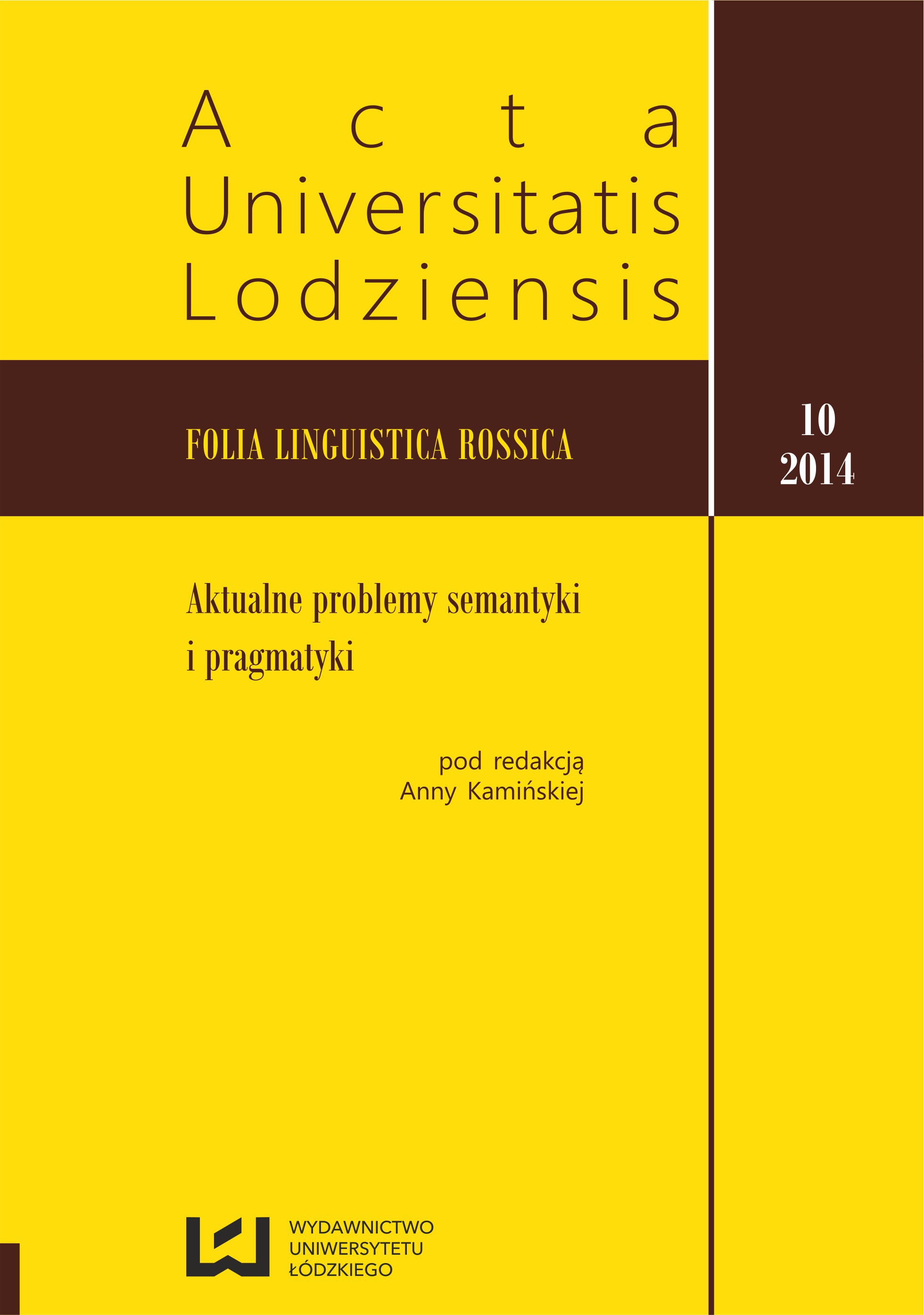НЕКОТОРЫЕ МОДЕЛИ АФФИКСАЛЬНОЙ ДЕРИВАЦИИ
КАК ПРИЧИНА НАЛИЧИЯ ЛАКУН (НА МАТЕРИАЛЕ БОЛГАРСКОГО, РУССКОГО И ГРЕЧЕСКОГО ЯЗЫКОВ)
AFFIXATION MODELS AS A REASON FOR THE PRESENCE OF LEXICAL GAPS (ON THE BASIS OF RUSSIAN, BULGARIAN AND GREEK)
Author(s): Viktoria KanevaSubject(s): Language and Literature Studies, Comparative Linguistics
Published by: Wydawnictwo Uniwersytetu Łódzkiego
Keywords: affixation; affixation models; non-equivalent lexis; “blank spaces”
Summary/Abstract: The article discusses the role that the means of formation of new lexical units by affixation in Russian, Bulgarian and Greek play in the appearance of “blank spaces” in the vocabulary of these three languages. The main methods of word formation in all three languages are almost identical, but there are peculiarities, which result in the presence of non-equivalent lexis in one of the languages in relation to the other two. Analyzing the means of formation of new lexical units by affixation in the three languages reveals two main reasons for the existence of lexical gaps in the compared languages, namely the different productivity and frequency of use of corresponding affixation models, and secondly the absence in one of the languages of similar in meaning and usage affixes carrying specific meaning.
Journal: Acta Universitatis Lodziensis. Folia Linguistica Rossica
- Issue Year: 2014
- Issue No: 10
- Page Range: 23-34
- Page Count: 12
- Language: Russian

